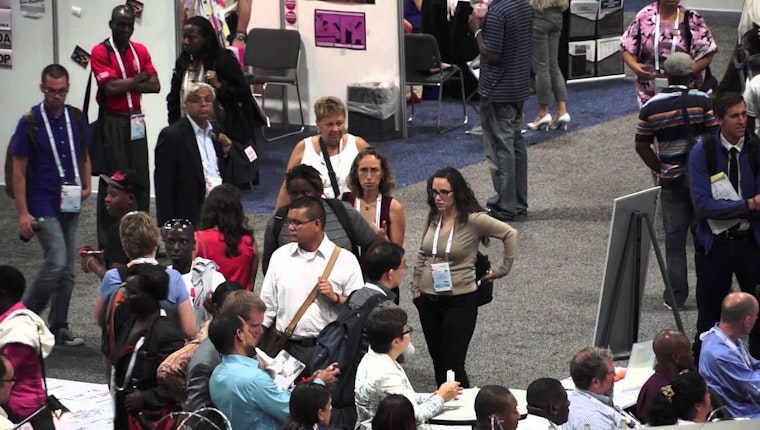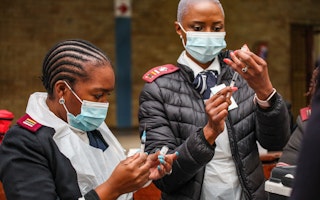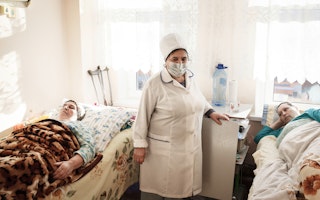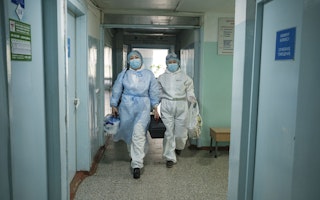“Pharma Greed Kills!”: AIDS Activists Take On Hepatitis C
By Azzi Momenghalibaf

AIDS activists from around the world are staging demonstrations and demanding affordable treatment for a blood borne virus that has infected 170 million and counting. No, the virus is not HIV but HCV, the virus that causes hepatitis C. Unlike AIDS, hepatitis C is curable but nonetheless kills 350,000 people every year. Why? Because the main medicine needed to treat it (Pegylated Interferon) continues to be protected by patents and therefore exorbitantly priced by the two pharmaceutical giants that make it, Roche and Merck.
Hundreds of thousands with HIV—including virtually all those who got the virus through tainted needles or infected blood products—are also infected with the hepatitis C virus. And a growing number of people affected by HCV are pushing for the kind of treatment activism that drove the price of AIDS drugs from out-of-reach to affordable in even the poorest countries. At the International AIDS Conference last month, activists gathered in Washington, DC, to launch a global call to lower HCV treatment prices. Currently, treatment for HCV can reach up to $20,000, a price that most people in developing countries just can’t afford to pay. In nations as varied as Kyrgyzstan and Malaysia, activists have also been collecting signatures as part of the Eurasian Harm Reduction Network (EHRN) campaign called the Hep C Treatment Waiting List , urging Merck and Roche to drop the cost of treatment so that the thousands, and possibly millions, living in the developing world who need treatment can access it.
In one of the most vivid demonstrations that took place in Washington, activists carried a plate of rotting lamb liver to a dinner symposium sponsored by Roche, chanting “stop eating our liver!” to point out that the company’s high prices were destroying livers and costing lives. Demanding that the company decrease the cost of treatment dramatically, activists also called for a minute of silence to honor those lost because of the companies’ greed, and reminded Roche and Merck that such actions will not stop until the prices of hepatitis C medicines are dropped. The demonstration was captured in this great video by the Hungarian Civil Liberties Union (HCLU).
HCV is only one example of a disease where lifesaving treatments remain out of reach because companies put patents and profits before people’s right to health. A growing movement—which includes several organizations supported by the Open Society Foundations such as Public Citizen, International Treatment Preparedness Coalition (ITPC), EHRN, and Health Gap—is fighting back against EU and U.S. efforts to extend patents and enact trade agreements like the Trans Pacific Partnership Agreement and EU-India FTA, which lead to higher drug prices and severely limit the ability of countries to provide affordable generics to their populations. As Shona Schonning from ITPC eloquently states in the HCLU video, “Treatment and lifesaving drugs are a right, not a privilege.”
For the millions with HCV who can’t afford the price tag, lifesaving treatment remains a right denied. If the HCV treatment activists have anything to say about it, that won’t be true for long.
Until November 2021, Azzi Momenghalibaf was a senior program officer with the Open Society Public Health Program.


